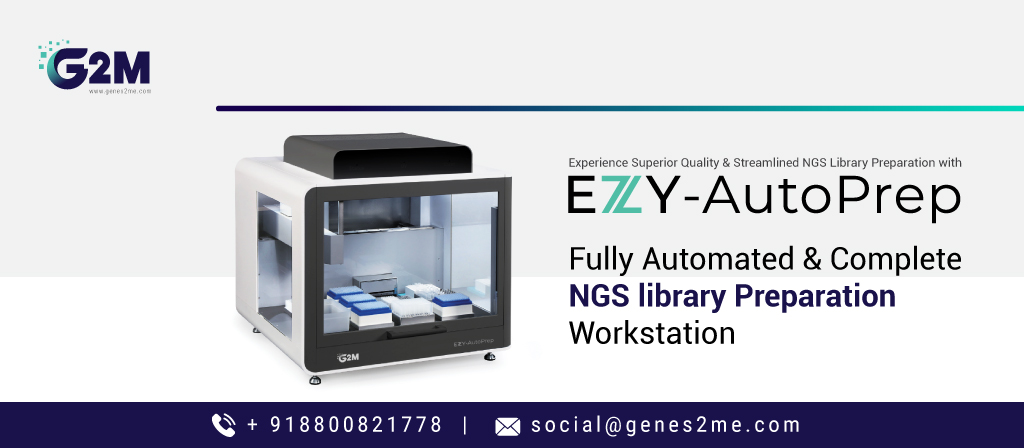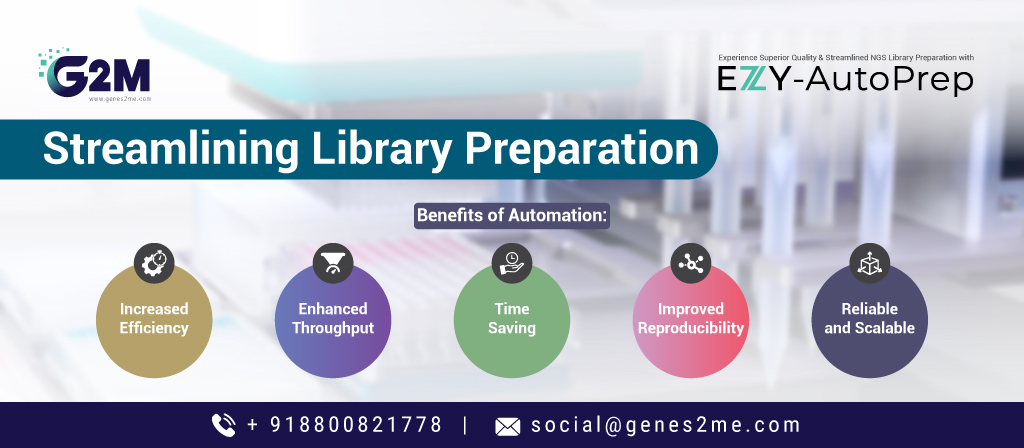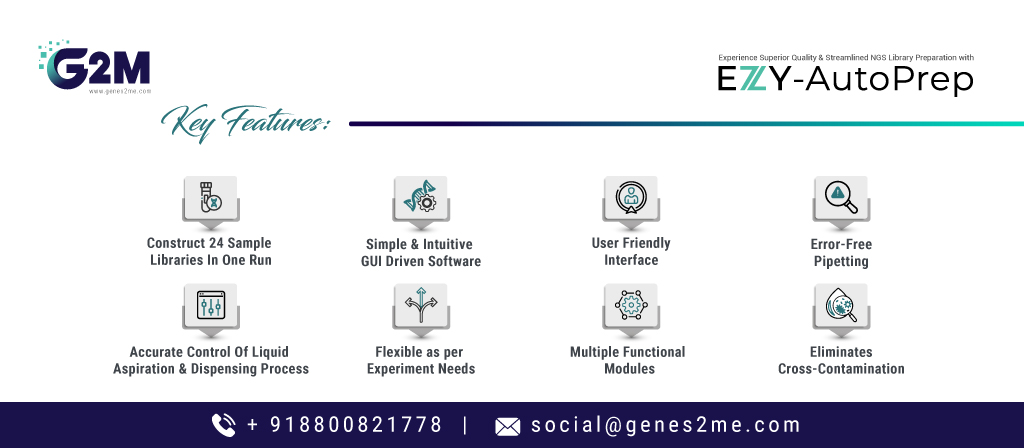Revolutionizing Library Preparation through EZY AutoPrep Workstation

In the realm of Next-Generation Sequencing (NGS), library preparation is a critical step that lays the foundation for accurate and reliable sequencing results. Traditionally, library preparation has been a labor-intensive and time-consuming process, prone to human error and variability. However, with advancements in automation technology like the newly launched EZY AutoPrep Workstation by G2M, researchers now have access to innovative solutions that revolutionize library preparation workflows, offering increased efficiency, reproducibility, and throughput.
Laboratory automation systems streamline workflows with the integration of robotics and specialized software, effectively managing rising test volumes while optimizing staff resources and reducing expenses. This technology proves to be a valuable tool in addressing challenges faced by laboratories, empowering researchers to expedite discoveries through efficient processes. As it continually enhances common laboratory tasks, lab automation remains a cornerstone of innovation within the life science community. The impact of automation in library preparation extends across various fields, including genomics, transcriptomics, epigenetics, and metagenomics. In research settings, automated workflows enable high-throughput screening, large-scale population studies, and comprehensive genomic profiling. In clinical diagnostics, automation ensures standardized sample processing, making NGS-based tests more reliable and reproducible for patient care.

G2M’s EZY-AutoPrep provides an automated NGS library preparation workstation that comes with friendly software, supporting hardware, and a professional team that ensures that you can run the actual samples in a short time, thus providing you with a good library preparation experience. It’s designed to handle different types and amounts of samples and reagents to suit various needs. The program interface is easy to understand, and it provides detailed error reports to help you set up your experiments smoothly. Plus, it includes features like heating and cooling, magnetic plate lifting, PCR thermal cycling, UV sterilization, and efficient purification to ensure accurate and contamination-free library construction.
EZY-AutoPrep Revolutionary features:
- Precise Pipetting: Self-developed high-precision 8-channel pipettor can be used as a single channel.
- Intelligent & Visual: Allow users to freely choose the running part or all of the experimental processes.
- Simple Operation, Get Started Quickly: A multi-level account management system supports the different needs of new users and advanced users.
- Multiple Functional Modules: The experimental platform can customize different modules according to the actual needs of customers to meet various experimental solutions.
- Flexible Matching Experiment Needs: Equipped with several temperature control modules to meet special temperature requirements such as reagent and sample storage.
- Efficient Pollution Prevention: The PCR module in EZY-AutoPrep can use a disposable automatic cover or conventional sealing cover to avoid condensation on the top and reduce the risk of cross-infection.
Streamlining Library Preparation:
Automation in library preparation involves the integration of robotic systems, liquid handling platforms, and sophisticated software algorithms to automate various steps of the process, including DNA fragmentation, end repair, adapter ligation, size selection, and sample indexing. By automating these tasks, researchers can significantly reduce hands-on time, minimize manual pipetting errors, and achieve higher sample throughput.

Benefits of Automation:
Increased Efficiency: Automation eliminates manual pipetting steps, reducing the risk of human error and variability. This results in more consistent and reproducible library preparations, leading to higher-quality sequencing data.
Enhanced Throughput: Automated library preparation systems can process multiple samples in parallel, significantly increasing throughput compared to manual methods. This enables researchers to analyse larger sample cohorts and accelerate their research timelines.
Time Savings: By automating repetitive tasks, researchers can save valuable time that would otherwise be spent on manual labor. This allows them to focus on data analysis and interpretation, ultimately accelerating scientific discoveries.
Improved Reproducibility: Automation ensures uniformity across library preparations, minimizing batch-to-batch variation and improving data reproducibility. This is particularly important for multi-center studies and clinical applications where consistency is paramount.
Scalability: Automated library preparation systems are scalable, allowing researchers to easily scale up or down according to their experimental needs. Whether processing a few samples or hundreds, automation offers flexibility without compromising on quality.
